How Severance Became An Instant Dystopian Classic
Warning: This article contains EXTREME spoilers.
Out of all of the shows that premiered this year, few have managed to receive better reviews than Apple's science fiction thriller 'Severance,' a succinct, and often absurd commentary on corporate life in America. The show follows a group of office workers who decide to separate their memories of their work life from their home life, only to find that they're slaves to a dubious and secretive corporation.
Directed by Ben Stiller and starring Adam Scott, 'Severance' currently boasts a 97% average score on Rotten Tomatoes. It was nominated for 14 Emmys; it won 2, and it topped Reelgood's list for number one streaming original. Critics loved it. Audiences were begging to see more, and it's obvious why.
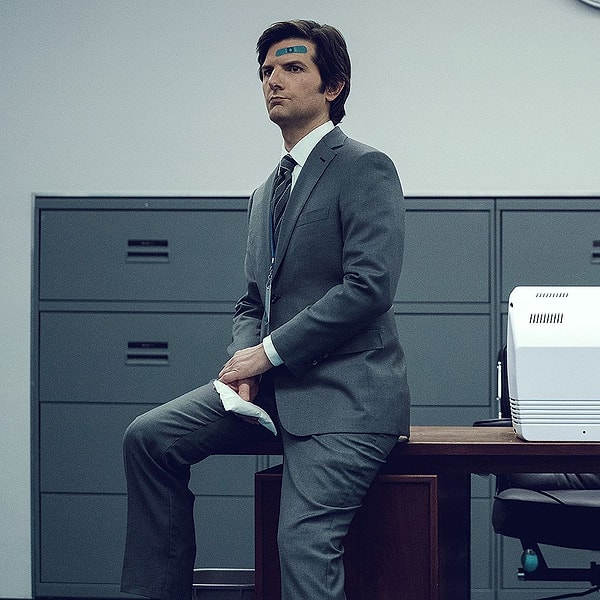
Courtesy of AppleTV+
Severance is Everything We Expected and So Much More
The office workers in the show never perceive anything other than their time at the company, Lumon Industries. They enter an elevator to leave at the end of the day, blink, then find themselves at the top of the elevator again. They don't remember anything that happens in between. That means they are trapped in a world where they sit in cubicles and stare at numbers for their entire existence.

Courtesy of AppleTV+
All of the basics of an office setting are there. The employees have pictures on their desks. One constantly obsesses over incentive parties. There's memos and a dense employee handbook. It's the type of environment that's meant to satiate the viewer's preexisting disillusionment with that world, and that is exactly what we all expect. But stopping there would be cliche. 'Severance' takes those 9 to 5 staples and twists them, turning the memos into edicts and the employee handbook into a form of scripture. The parties are the only form of enjoyment they have. The photos are switched out to help them forget employees that vanish. The show confronts and exaggerates everything we know about corporations, from bureaucracy to everyday office supplies, forcing us to examine these institutions on a deeper level. It's profound. It doesn't bore us or make us angry. It makes us think.
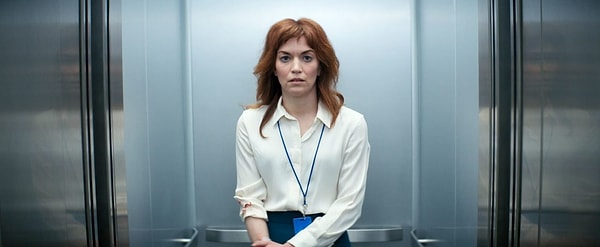
Courtesy of AppleTV+
The Characters Are Timeless Archetypes
We're first introduced to the melodrama when we meet Helly (Britt Lower) who wakes up and finds out that she doesn't know who she is. She's trapped in corporate hell, and she can't leave, no matter how hard she tries. She blatantly refuses to conform. Instead, she attempts to send messages to her Outie, or the side of herself that exists outside of Lumon. Her plan is to beg herself to quit. She does everything from drawing on her skin to swallowing a secret note. Finally, she fakes a suicide attempt, so her Outie will know exactly how she feels. It's an exaggerated version of what many office workers go through. They hate their lives so much that they'd do anything to make it stop, but they can't; they're trapped. That sense of hopelessness is something that many understand on a profound level. To see it play out with such violent desperation is thrilling and cathartic. It's like screaming when you can't hold it in any longer.

Courtesy of AppleTV+
Helly represents a type of restlessness that many of us foster during our 9 to 5 lives. She wouldn't work. No matter how hard they tried to get her to sit down and stare at the numbers, she wouldn't do it. She was always trying to find a way out. She hated the idea of the parties. She thought they were meaningless incentives, and she had no problem saying so. Most of us think that way as well. We have a voice inside that wants to tear down our cubicle walls, break out of prison, and do our own thing.
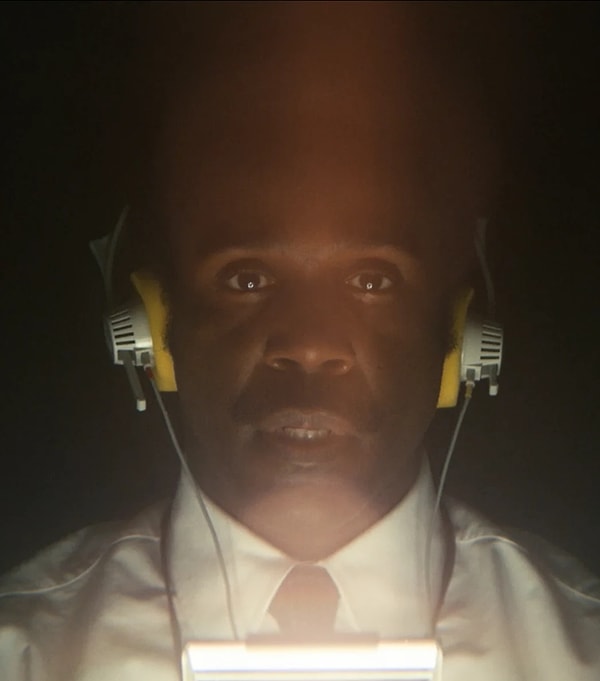
Courtesy of AppleTV+
Eventually, Helly was brought back to what they call the Break Room, a type of torture chamber where employees are forced to read an apology over and over again while they're strapped to a polygraph. The goal is to make them love Big Brother. They need to believe that obeying the company is the right thing to do. The exercise goes on until the needle on the polygraph no longer moves, and it's clear that they have been brainwashed.
As we go through our daily work schedules, we try to quiet that restless voice inside ourselves that Helly embodies. We tell ourselves that we need to work. We need to get paid. We obey and do what we're told, and eventually, we begin to believe that company policy is synonymous with morality. Tardiness is immoral. Talking back to our bosses is immoral. Doing something that might get us in trouble is immoral. It's a way that we naturally conform. 'Severance' used her to help us understand the ways that companies control us, and they did an amazing job.

Courtesy of AppleTV+
The Antagonists Also Make Us Think
One of the main antagonists, Harmony Cobel (Patricia Arquette) is a middle manager for Lumon Industries. With her straight, mid-length gray hair and her square jaw, we're led to believe that she is shrewd, commanding, and businesslike. As the story goes on, we see that she has another side as well.
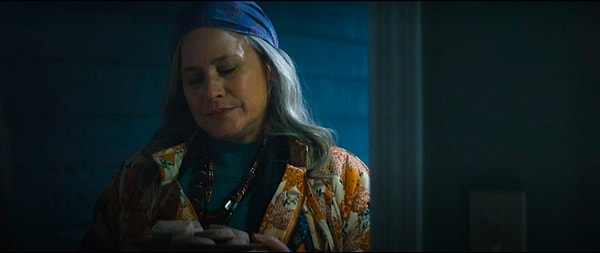
Courtesy of AppleTV+
Harmony lives next door to the main character, Mark Scout, in a company cookie cutter, where she pretends to be Mrs. Selvig, an old hippy lady that owns a fictional shop selling soaps and candles. She's always telling him to visit, but he can't because of his work hours. As Mrs. Selvig, she ditches the straight hair for a long braid or pigtails. She wears flowing skirts and headscarves, making us wonder who she really is. When we finally do get a glimpse into her home, we see a place that is empty, filthy, and mostly devoid of furniture. The only part that seems to be decorated is her room, which is modeled after her dorm at the Myrtle Eagan School for Girls.
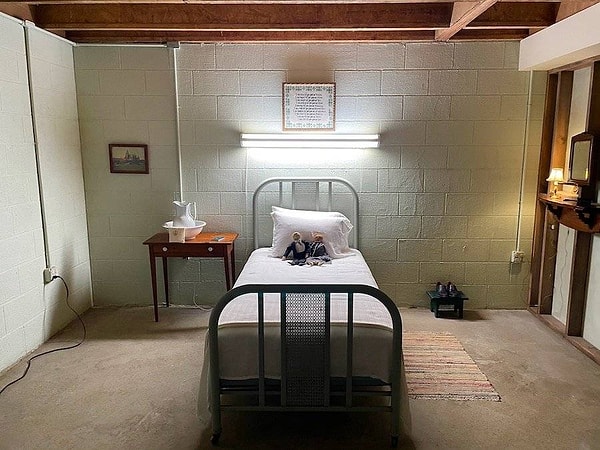
Courtesy of AppleTV+ via Severance Wiki
Lumon, like many companies, has developed a culture built around a historical narrative and guiding principles. It evolved into a cult of personality complete with monuments, paintings, and scripture--an exaggerated form of what we can expect from real-life conglomerates. Harmony was inducted into this cult at the girl's school when she was a child. Ever since then she's been so dedicated to serving the company's founder, Kier Eagan, that she has a shrine dedicated to him in her living room. She even lights candles and prays to him like he's a god.
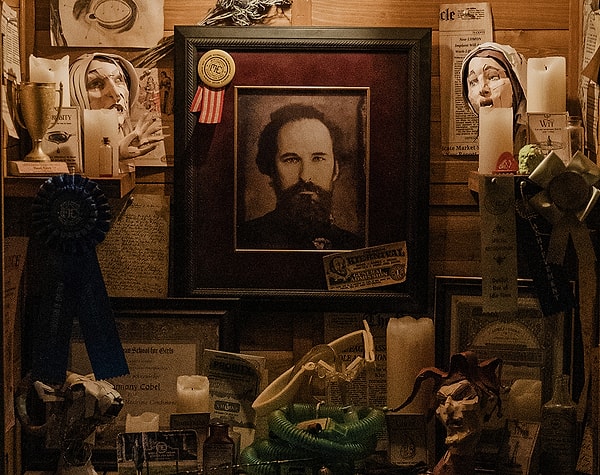
Courtesy of AppleTV+
Harmony's home is bare and filthy because everything she owns and everything she does is dedicated to serving Kier. That's why, even though she's a middle manager, her car is old. She doesn't want something new. She just wants something that can get her from point A to point B. She's on a mission. She's like a lot of professionals. Most spend every waking hour at work. Their houses will be left unlived in, filled with unused personal items and pointless decorations. It's obvious that their lives are elsewhere, just like hers.
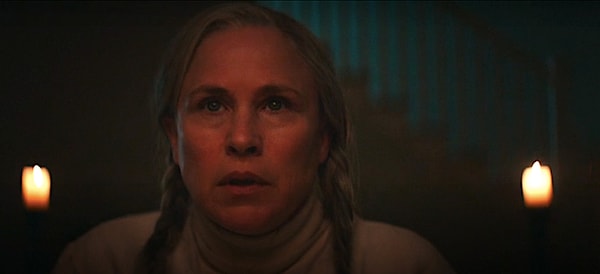
Courtesy of AppleTV+
The sad truth about Harmony is that she's just as disposable as any other working professional. The company fires her for nothing. But when you give everything you are to your company--or your oppressor--that loyalty doesn't just go away. It's almost like Stockholm Syndrome. The obedience that they instill turns into love. So when Lumon was met with disaster, she still ran in and saved the day.
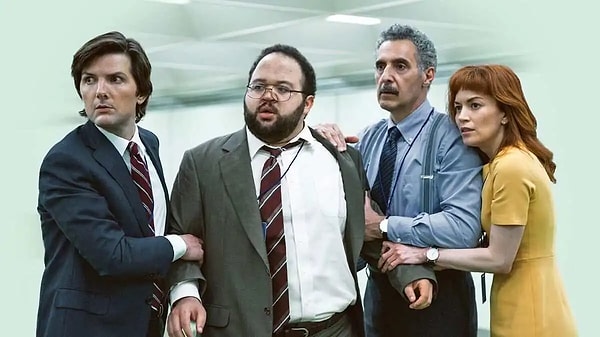
Courtesy of AppleTV+
Severance Isn't Over Yet
'Severance' created a multi-layered discourse, one that could be analyzed endlessly. We can come back to it time and time again, knowing that we'll learn something new. It also introduced us to a complex world filled with things that we don't understand. We've only scratched the surface in the first season, and we can't wait to see what they come up with next. It doesn't look like we'll have to wait long. Apple randomly surprised us with a video of Helly in one of its new product videos, reminding us that season 2 is coming.
Keşfet ile ziyaret ettiğin tüm kategorileri tek akışta gör!

Send Comment